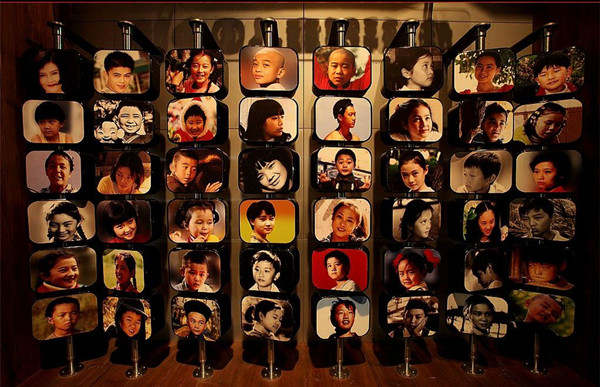 |
|
[File photo] |
Chinese films are encountering some difficulties as they journey along the ancient Silk Road, a recent report suggests.
In its annual report on the global influence of Chinese cinema, the Academy for International Communication of Chinese Culture affiliated to Beijing Normal University says more than 30 percent of those interviewed for the survey considered "the thoughts and logic of Chinese films difficult to understand" and less than 40 percent shared values expressed in the films.
The report, released last week, says one-third of the interviewees said they generally weren't interested in Chinese films.
With China's film administrators not known to conduct similar research, the report has become an established source of information on the reception of Chinese cinema abroad.
This year's report includes studying 46 countries and six foreign regions along the Eurasian overland and marine routes that were once connected to China through trade and cultural ties.
Some 1,800 answer sheets from ordinary moviegoers in these places were collected in 31 languages for the survey.
Huang Huiling, head of the academy and the report's main author, says traditional surveys based on in-depth interviews are more suitable to spot problems as compared with the popular big data analysis of the recent times.
"The status quo isn't good," Huang says. "To increase our influence overseas, the quality of Chinese films needs to improve."
Only 30 percent of the interviewees gave positive comments on "stories, performances and production of Chinese films". But nearly half saw strong self-defining characteristics in Chinese cinema.
"It also tells Chinese filmmakers to stick to their own features to win broader attention," says Huang.
There isn't enough in terms of promoting Chinese cinema abroad, especially in channels closer to people's daily lives, the report says.
Merely 7.8 percent of the interviewees noticed outdoor advertisements of Chinese films in their home countries; 36 percent never found any information on Chinese films in their community-level activities; and 70 percent were unsatisfied with subtitles in their native languages - poor subtitles are stopping Chinese films from reaching more foreign audiences.
Luo Jun, deputy head of the academy, says: "To have quality subtitles, one will need to understand both Chinese culture and the culture of the foreign country.
"We need Chinese who know foreign cultures well and expats who have abundant knowledge of Chinese culture."
But foreign participation in producing subtitles is usually not enough, which often leaves Chinese films making literal translations without reflecting context. The situation is more embarrassing for lesser-spoken languages, he says.
Different regions along the ancient Silk Road vary greatly in terms of the understanding of Chinese films, Huang says of the survey.
While Southeast Asian countries showed easier understanding of Chinese films despite language barriers due to cultural proximity, those in the Middle and Eastern Europe showed lower acceptance of the films.
Dai Yuanchu, a media researcher, says: "When subtitles are generally imperfect, audiences with similar cultural backgrounds can fill the void using their own experiences.
"However, people from a different region like Eastern Europe will probably not be able to catch nonverbal meanings in movies."
Kung fu films remained the most popular genre, but its advantage over other genres wasn't obvious, according to the report.
Chinese films can no longer purely rely on martial arts to win foreign markets, Huang says.
There were some surprising discoveries that could give China's film industry new ideas.
Chinese documentaries were most welcomed in West Asia and North Africa.
Horror films from China that are often ignored by domestic moviegoers were popular in Japan and South Korea.
Sha Dan, an expert with China Film Archive, says: "Commercial packaging is necessary for Chinese films if they want to be better accepted, no matter what genre it is."
He thinks coproduction is possibly one of the better ways to handle such issues.
wangkaihao@chinadaily.com.cn
|
|
|
|
|
|
|
|
